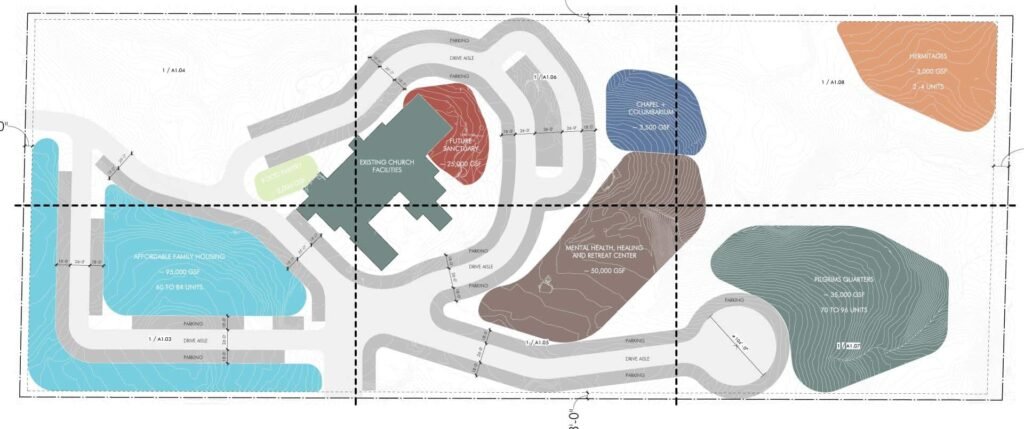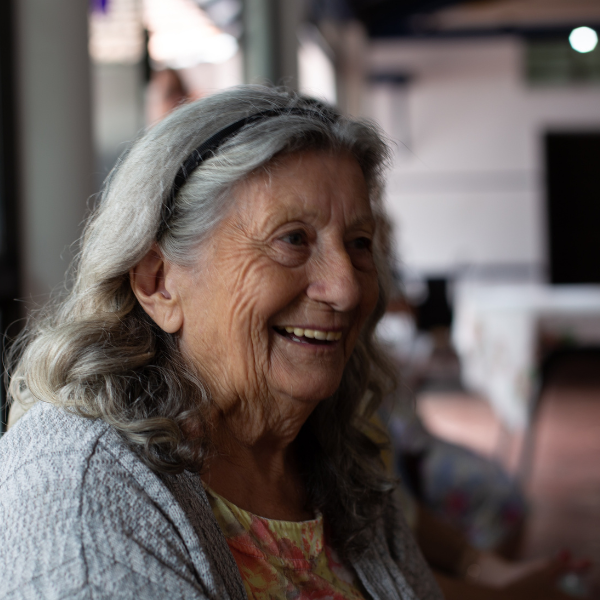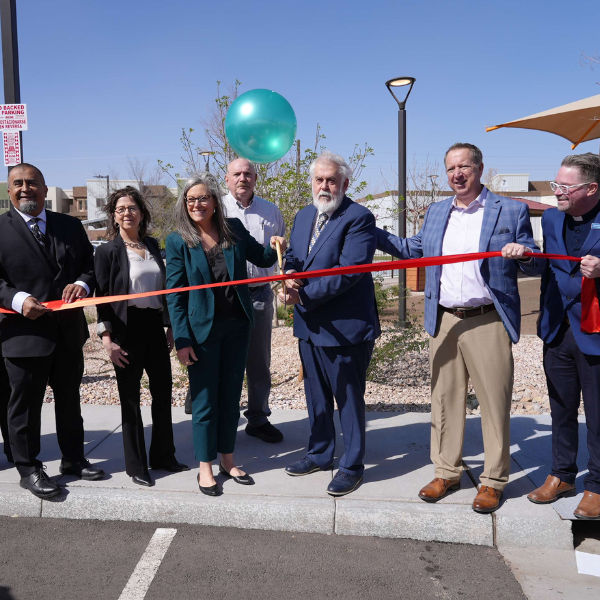St. John Vianney Diocese Unveils Plans for New Developments
The Catholic Diocese of St. John Vianney has revealed intentions to expand its West Sedona property with a significant addition of 200,000 square feet through three distinct projects.
These initiatives consist of a new facility for St. Vincent DePaul Services, low-income housing units, and a retreat center for pilgrims. During a public meeting on August 21, nearly 80 attendees expressed various concerns, particularly regarding the low-income housing component. Resident Lou Harper voiced a strong preference for maintaining the church’s property for purely religious purposes.
He commented, “They graduated from my Catholic high school and then went back east to turn it into low-income housing. It doesn’t sit right with me; that part of town was struggling, and now they’re trying to clean it up. It seemed like a nice idea, but the reality is different, and I’ve seen too many areas struggle because of it.” Others in the room shared their concerns about the potential effects of new apartments on the local community.
“We’re right across the street. Half the year, we struggle to leave our driveway due to the traffic, which stretches back to the main road,” neighbor Sondra Brunone remarked. “With all these new developments and the increased foot traffic, it’s hard to see how things won’t get more chaotic.”
Trevor Korsten, an attorney specializing in real estate, noted that Sedona has been officially facing a housing crisis since December. “According to a 2020 housing study, the city identified a shortfall of approximately 1,200 workforce housing units,” he explained. “This expansion could meaningfully address those needs.”
Funding for the housing units will come from Catholic charities, supplemented by low-income housing tax credits. “To qualify for these credits, the housing needs to cater to individuals earning between 30% to 60% of the area median income,” he added. For context, a family of four in Sedona earning 60% of the median income typically makes about $54,000 a year.
In March 2024, the city approved a community plan that identifies key areas for development, including the vicinity of Soldiers Pass Road where the church is located.
Father Ignatius Mazanowski shared that discussions with a Catholic charity regarding the project began about 15 months ago, inspired by a successful similar initiative in a Phoenix parish.
Resident Suzanne Hughes recounted her lengthy commute, stating, “I often spend up to an hour and a half driving home from work. My husband’s stable job helps, but it’s still a struggle.” She emphasized the necessity of local housing, noting that essential workers like teachers or medical staff should not have to travel long distances to serve the community.
“After all, how can we expect timely medical responses if our healthcare professionals are stuck in traffic?” she asked. “We really need people who can live closer to work for the good of everyone.”
The St. Vincent DePaul organization, operating under the church’s umbrella, provides various services, including a food pantry. This project aims not just to provide housing, but also to enhance the church’s capabilities with a new service building and retreat center.
Father Mazanowski pointed out the center’s significance to Catholic traditions, explaining that such retreats are common across the nation. “The retreat center will not only offer accommodation but also mental health counseling and support for those who feel isolated,” he noted.
The proposed mental health services will feature two counselors dedicated to supporting individuals visiting the retreat center as well as those served by St. Vincent DePaul. “We aim to expand our outreach through our Mental Health Fan Aid program,” Mazanowski added. “Having this component is crucial to aiding those we serve.”
During the public session, Mazanowski revealed that the estimated cost for the apartments exceeds $20 million, with total project projections reaching up to $50 million. Initially, he mentioned a higher figure, but adjusted it after receiving community feedback.
Ray Me Leroy from the Parish explained that specifics around funding are still being finalized. “We’re at a stage currently focused on rezoning,” he said. “Approval will enable us to proceed with structural design and development.”
The rezoning application emphasizes preserving Sedona’s natural aesthetics while addressing the need for low-income housing and the establishment of the retreat center. Community feedback regarding this application will play a crucial role in determining the next steps.
While the St. Vincent DePaul expansion and retreat center face fewer objections than the housing initiative, some community members questioned if the project could happen without the housing component. Though plans remain in the preliminary stages, Mazanowski assured that more information would emerge following discussions on the city’s rezoning application.
Ultimately, St. Vincent DePaul aims to facilitate all three projects, but, according to Korsten, only the apartments require the rezoning process. Other components may proceed under a special use permit.







